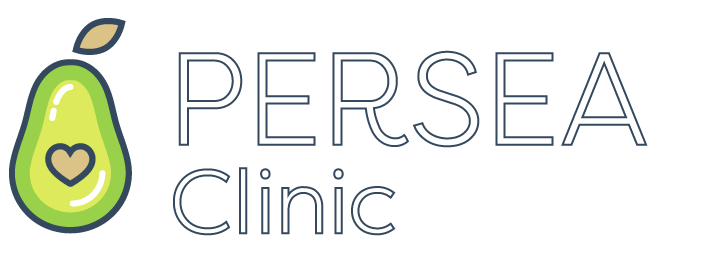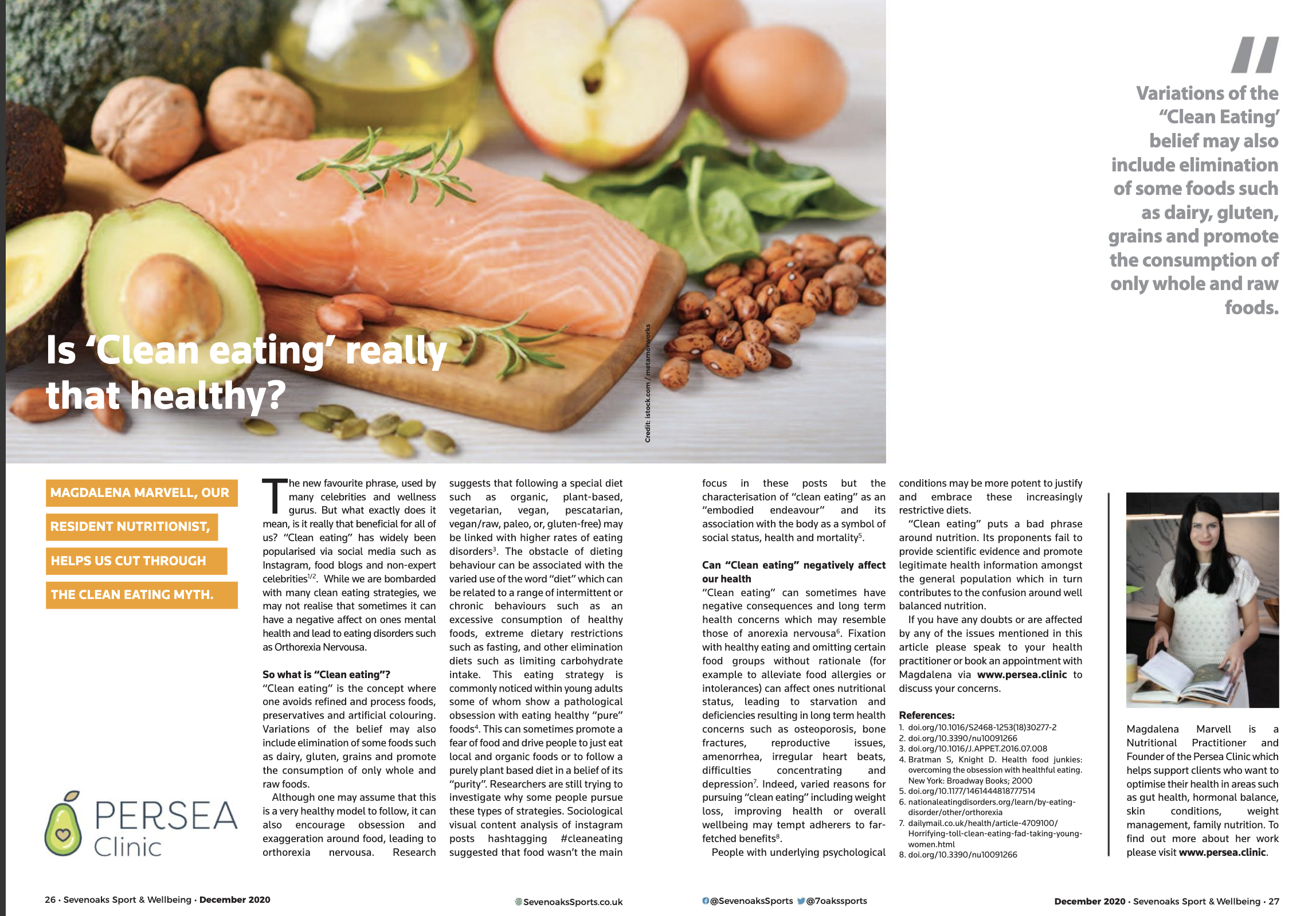Press and media
is “clean eating” really that healthy? Sevenoaks Sports and wellbeing magazine - december 2020.
The new favourite phrase, used by many celebrities and wellness gurus. But what exactly does it mean, is it really that beneficial for all of us? “Clean eating” has widely been popularised via social media such as Instagram, food blogs and non-expert celebrities. While we are bombarded with many clean eating strategies, we may not realise that sometimes it can have a negative affect on ones mental health and lead to eating disorders such as Orthorexia Nervosa.
https://issuu.com/sevenoakssports/docs/1_ssw_december_p1-30/28
“POWER UP YOUR BRAIN!” SEVENOAKS SPORTS AND WELLBEING MAGAZINE - NOVEMBER 2O2O.
Did you know that our BRAIN is composed of 85% of WATER and consists of around 60% FAT (dry weight)! The reason why I mention this is to highlight the importance of feeding our brain with good, healthy fats. Many of us are still influenced by the earliest studies of fat which demonised fat consumption. However a good source of fat is an important component in our wellbeing and cognitive health. Good saturated (such as medium chain trigecyrides found in coconut oil) and unsaturated fats such as: polyunsaturated (found in oily fish, nuts and seeds containing EFAs: Omega 3 and Omega 6) and (monounsaturated found in macadamia nuts, pumpkin seeds and avocado) are essential to support our cognitive health, improve memory, heart health and provide our brain with immediate energy when our blood glucose is low. Our body also utilises dietary fat for energy, so it helps keep us going throughout the day. Dietary fats are also crucial to transport the fat soluble vitamins (such as vitA, D, E and K) straight to our brain which is necessary for good mental health. Read more on how to Power Up your Brain in November’s article in Sevenoaks sports and wellbeing magazine
You may also want to give my latest recipe a go - Super Energy Fat Bombs! which can be found online in the SS&W: https://issuu.com/sevenoakssports/docs/1_40ssw_november/32
“ARE YOU AN EARLY BIRD OR A NIGHT OWL?” Sevenoaks Sports and wellbeing magazine - october 2020
Did you know that ‘NIGHT OWLS’ 🦉 are more likely to experience sleep deprivation which in the long run can affect their mood 😫trigger weight gain 🍩and sleepiness 💤 during the day? Studies also suggest that sleep deprivation may reduce insulin sensitivity and glucose metabolism resulting in weight gain. Read more in October’s Sevenoaks Sports and Wellbeing magazine. Available online here: https://issuu.com/sevenoakssports/docs/1_ssports_october_issuu/32
“MEDITERRANEAN goodness for our hearts ♥️ and minds💆♀️”. Sevenoaks Sports and wellbeing Magazine - september 2020.
In this issue I recite fond food memories inspired by my recent trip across the French Riviera and look at why the Mediterranean diet is so good for our health. I have always wondered why the Mediterranean diet has been cited as one of the healthiest diets in the world. Observing the amount of bread, pasta and pastries being consumed by people in Italy, Greece or across southern France you could easily be fooled into thinking the diet may even be unhealthy, so what are the factors that make this diet so good for us and especially our cardiovascular and cognitive health? Read more at https://issuu.com/sevenoakssports/docs/ssw_september_2020/32
“seasonal hay fever or is your histamine level slightly out of balance?” SEVENOAKS SPORTS AND WELLBEING MAGAZINE - june 2O2O.
HAY FEVER or Histamine intolerance. So many of us suffer from unpleasant symptoms of seasonal hay fever, but did you know that certain foods naturally contain high levels of histamine and may trigger an excessive release of histamine which our body may be unable to break down? As a result this can develop into histamine intolerance and ‘allergy’ like symptoms similar to hay fever. Check out my low histamine recipes and read more at: https://issuu.com/sevenoakssports/docs/june_2020/26
“gut - BRAIN axis - the circuit of emotions!” SEVENOAKS SPORTS AND WELLBEING MAGAZINE - May 2020.
DID you know that even short use of antibiotics can temporarily alter microbiome composition and lead to long term dysbiosis (imbalance in the human microflora). Read more online: https://issuu.com/sevenoakssports/docs/1_ssports_may_p1-34/24






